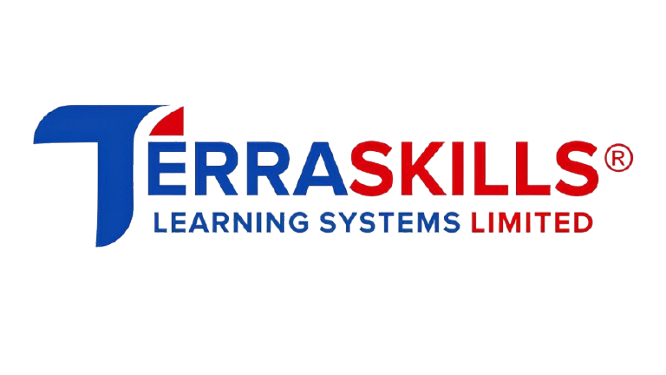As jobs are transformed by the technologies of the Fourth Industrial Revolution, more than 1 billion people need to be reskilled by 2030. By 2022 – 42% of core skills required to perform existing jobs are expected to change – World Economic Forum (WEF).
The shift from analogue to digital, as well as digital ubiquity, has had an impact on practically every area of our lives. Playing, working, socializing, literacy, educational practice, and, lastly, the job market has all seen substantial transformations. Global labour market changes are redefining and generating new employment, with new needs for updated ICT related knowledge and skills. Today, the vast majority of professions need a working knowledge of technology, and employees should be able to communicate, collaborate, and handle information using relevant tools.
In general, digital literacy skills are linked to the notion of employability since it is a key skill that many businesses look for when evaluating a job application, and as such, it is vital to students all over the world who are looking for work.
Automation, robotics, artificial intelligence, 3D printing, machine learning, the Internet of Things, and blockchains, among other sectors, will revolutionize the opportunities and problems encountered by young women and men in the labour market.
These shifts are resulting in the emergence of entirely new sectors, employment, commodities, and services, as well as increased productivity. New technologies can help low- and middle-income nations “leapfrog” to more advanced phases of development by lowering the cost of manufacturing and service delivery.
They can also help to promote the 2030 Agenda for Sustainable Development of the United Nations. Continuing technological advancements, on the other hand, may disrupt labour markets and disproportionately favour nations with a strong technological foundation, resulting in even higher inequality.
According to a Dell Technologies assessment on the influence of emerging technologies on society and work in 2030, 85 percent of anticipated employment for 2030 do not yet exist, owing to the fast advancement of technology. Digital skills give a measure of “future-proofing” for job searchers as a result of fast technological advancement, as the skills are important to professions that are less likely to be automated in the future. In general, digital skills improve analytical and creative abilities, which are less likely to be replaced by robots. Digital skills can assist people to grow more quickly in their employment. Employees may develop through their professions with skill sets that boost their marketability by gaining high-demand digital skills.
Three categories of digitally intense occupations
1. Door Openers
These are middle-skill jobs with a strong need for digital abilities, but they’re usually entry-level jobs. Digital skills, particularly productivity software abilities, are becoming essential entry points into nearly every sector of the middle-skill job market. More than a third of middle-skills employment (36%) are in occupations where the sole digital need is productivity software knowledge.
Moreover, these productivity software abilities are frequently one-of-a-kind criteria for these jobs, providing a distinct, easily attainable road to employment. For middle-skill job seekers in fields like administration, customer service, and business management, the digital skill need is virtually completely in productivity software, whereas advanced roles require more technical skill sets, such as CRM software and digital design software. Because 53 percent of job ads are for entry-level individuals, these jobs provide great chances for entry-level applicants with the right qualifications.
2. Career Advancers
These professions are more advanced in terms of both the amount of necessary expertise and the sophistication of the requisite digital skills. Digital abilities will become increasingly important for workers as they work their way up the corporate ladder. To develop into Network /Systems Administrator roles, you may need to upskill or get skilled in network infrastructure, and add networking certifications. There is also a rise in the use of productivity tools in managerial positions across all sectors.
The ability to use productivity software is a requirement for progress in the retail, construction, production, and maintenance industries. In these professions, the types and applications of digital skills differ. For instance, recruiters utilize social media sites like LinkedIn and Twitter to find and recruit exceptional employees; and to assist the effective administration of projects, Project Managers are expected to have productivity software abilities, such as Microsoft Excel; frequently, and many other productivity software that allows and enhances collaboration such as Microsoft teams and ClickUp or Slack.
3. Specialized Roles
Specialized roles are a collection of specialized tasks that need a domain or even role-specific digital abilities, particularly in manufacturing and health care. For workers to enter the profession, they must have a basic level of digital proficiency.
Individuals with the necessary digital skill sets can find a robust collection of entry-level possibilities in specialized areas. The majority of them are healthcare employment, such as healthcare technician positions, that need specialized digital knowledge but are frequently entry-level. It has been estimated that 87 percent of positions in the industries demanding these Occupationally Specific Digital Skills are expected to be entry-level, and more than half of job advertisements require less than two years of experience.
Where it begins
Digital Fundamentals
Foundational technological abilities, such as typing, and competencies, such as computer basics (Microsoft Word, PowerPoint and Excel) and business applications, are the starting points for digital literacy.
Beyond the fundamentals, these abilities help employees to think critically and act decisively when choosing the “best” digital tools for a given task. These abilities also help employees to communicate efficiently, and express themselves clearly by enhancing their confidence.
Digital Skills Gap in Africa
Africa is grappling with a massive digital skills gap, which is stifling economic growth and development. According to research by the International Finance Corporation (IFC), a member of the World Bank Group and the largest global development agency focused on the private sector in developing countries, 230 million jobs throughout the continent would require some degree of digital skills by 2030. The necessity for these skills has only been more obvious in recent months, as the COVID-19 pandemic has forced many firms to move digital in order to survive.
According to recent research conducted by the International Finance Corporation (IFC) and the World Bank (through the Digital Development Program Trust Fund) in Cote d’Ivoire, Kenya, Mozambique, Nigeria, and Rwanda, digital skills will be required for 50-55 percent of jobs in Kenya by 2030, 35-45 percent in Côte d’Ivoire, Nigeria, and Rwanda, and 20-25 percent in Mozambique.
By 2030, these five countries will have 57 million occupations that demand digital skills. As more businesses embrace digital technology across a wide range of industries, most of the need for digital skills will come from general vocations rather than narrowly defined ICT professions. Foundational digital skills will account for around 70% of demand, while non-ICT intermediate level digital abilities will account for the remaining 23%.

Agribusiness employees, for instance, will require training on how to track income and spending using financial software. Professionals will need to know how to create online presentations using cutting-edge software programs. Tourism businesses will want to learn about digital marketing techniques that may help them develop their businesses, such as which social media platforms to utilize and how to create a visually appealing website. These are only a few of the fundamental digital gaps that will need to be bridged.
How Terraskills is Bridging the Digital Gap
Work from Home, Learn from Home, and telehealth became the standard across the world as a result of the COVID pandemic; these trends aren’t going away, and they’re accompanied by substantial transformations in the utilization of ICT infrastructure.
Bridging the digital gap especially in Nigeria is a challenge that necessitates solutions in the areas of accessibility, cost, and digital skills, all of which are intertwined with social economics, infrastructure, and technology.
Terraskills developed the Digital Literacy Skills (DLS) faculty to cover the skills gap targeting one area at a time. The understanding that digital skills gap is caused by two key reasons that influence different industries and economies in different ways was of great importance to the uniqueness of the syllabuses.
These reasons include;
- The dearth of digital skills among current employees: this maybe most important
- The dearth of appropriately prepared graduates to fill digital positions in increasing technical businesses.
Both of these issues have the potential to significantly limit the growth of individual businesses as well as entire economies, potentially causing a recession. Employees lack of digital skills is a fundamental issue that makes it difficult for firms, particularly huge, well-established corporations with enormous workforces, to adopt digital technologies that would increase their productivity. Companies who fail to meet this challenge, are likely to be surpassed by those that do, or by new businesses that aren’t encumbered by a staff deficient in digital capabilities.
The challenge of shortage of graduates with IT skills, is particularly unhelpful to developing countries. For individuals, an opportunity arises in bridging their own skills gap. Graduates, applicants, professionals skilled in ICT currently have their pick of the best ICT jobs. Adding a digital qualification to your resume while the skills gap remains open can turn a career jump into a career leap.
Understanding the importance of digital skills in organisational success as well as in individuals career, Terraskills® developed the Digital Literacy Skills (DLS). The DLS consolidated syllabus has over 90% inclusion of ICDL syllabus. Our strength relies mostly on our ultra-modern facilities and up-to-date software as well as our competent computer instructors who over the years have shown high level of professionalism with their incessant creativity and innovations in the IT world.



